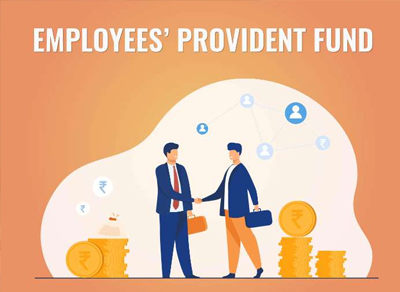EPF Return
The Employees' Provident Funds & Miscellaneous Provisions Act, 1952 (EPF Act) has been enacted with main objective of protecting the interest of an employees after his retirment and social security to himself and his dependents. The Act provides the shield to workers and dependents from risk of age, retirement, retrenchment and death.
Payment of EPF Contribution
The employer shall pay the contribution payble to the employees provident fund, employees deposite linked insurance, and employees pension fund in respect of the member of the employees pension fund by him directly or through a contractor.It shall be the responsibility of the principal employer to pay the contributions payble to the EPF, EDLI and EPS by himself in respect of the employees directly employed by him and also in respect of the employees employed through a contractor.

Applicability :
EPF Act, 1952 extends to whole of India except to the state of Jammu & Kashmir
It applies on every establishment employing 20 or more persons & engaged in industry specified in Schedule I of the Act or any other activity notified by the Central Government
It applies to all departments / branches of an establishment wherever situated in India and aboard.
Any establishment employing even less than 20 persons can be covered voluntarily under section 1(4) of the Act
Eligibility
Employees drawing salary / wages at the time of joining up-to Rs. 6,500/- per month are governed by the provisions of the Act.
Employees drawing salary / wages more than Rs. 6,500/- per month may also be brought under the purview of the Act at the discretion of the management and by furnishing a joint undertaking to the Provident Fund Commissioner.
Employees engaged through the Contractor in or in connection with the work of an establishment are also covered under the purview of the Act.